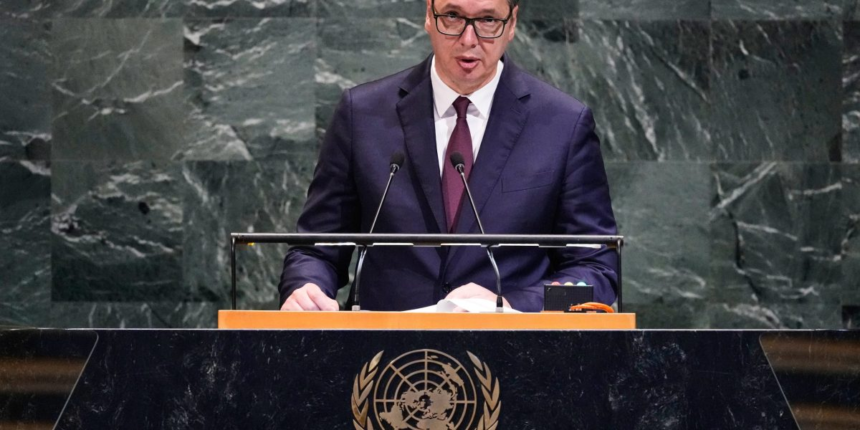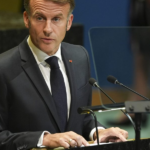Two weeks after Kirk was shot and killed in Utah, several of the world leaders gathered at for the U.N. General Assembly this week referenced the conservative activist’s slaying — and some of the divisive outpouring of reaction to it — as evidence of deeper fissures in global society.
Decrying the “sick expression of joy for the crime committed against an innocent person,” Serbian President Alexsandar Vucic told assembled leaders on Wednesday that reaction to Kirk’s death represents “the best confirmation of that.”
Social media lit up in the days after Kirk’s Sept. 10 death with people mourning his loss — some of whom said they disagreed with Kirk’s ideological stances but supported his right to voice them — as well as those celebrating it.
On Wednesday, Vucic said reaction to the conservative activist’s assassination was demarcated “less by ideological but much more by emotional hate driven differences.”
“Such a development devastates in a deepest and clearest way the world political community much more than conflicts with clear and visible actors,” Vucic said, remarking on how such a seemingly singular event can evoke such strong reactions across the globe.
“He was savagely assassinated just because his killer did not like his ideas,” Vucic said of Kirk, suggesting that some of the reaction in the slaying’s aftermath caused yet more damage in terms of the division it sowed. “He was shot even after death by the same ones who had prepared political and media grounds for his assassination.”
Paraguayan President Santiago Peña also mentioned Kirk in his speech Wednesday, saying in Spanish that he was “shaken, saddened, and distressed” by Kirk’s killing and arguing that the “macabre response must awaken us from our sleepy state of complacency.”
“Sadly, his life was short by a bullet,” Zelenskyy said of Kirk. “Once again, violence with a rifle in hand.”
___
Jennifer Peltz contributed to this report.









